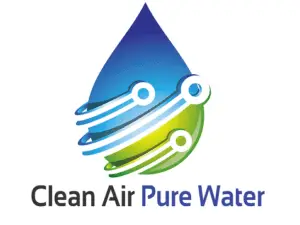Because of pollution and other factors contaminating ground and tap water, people today often want to make sure they are drinking safe, potable water. According to the EPA, all water contains some level of contaminants, whether it’s tap or bottled. If you’re thinking about boiling mineral water, you might want to make sure you wish to concentrate all the minerals it contains.
Mineral water can be boiled for drinking. In fact, since contaminant levels in bottled water can be unpredictable, it might be a good idea to boil it, especially if you are not exactly sure of the company bottling it. Just don’t overboil it and stick to no more than three minutes.
The next paragraphs will give the correct definition of mineral water. The benefits versus the risks of this type of water are also discussed. Additionally, you will be advised of warnings created by a couple of sources that have investigated the purity of mineral and other bottled waters.
What Is Authentic Mineral Water?
The EPA defines mineral water as “Groundwater that naturally contains 250 or more parts per million of total dissolved solids.”
The FDA adds that the source is underground, and the trace elements and minerals in the water come from the underground source and are not added to it later.
According to Medical News Today, mineral water contains high sodium, calcium, and magnesium levels, higher than the levels in tap water, and bottling is done at the source. If mineral water or any other water type is carbonated, it is considered a soda rather than bottled water.
What Is the Difference Between Mineral Water and Other Water?
Reasons people may prefer mineral water over tap water include:
- Bottling at the source eliminates possible contamination by traveling through pipes.
- Mineral Water is not chlorinated
- Mineral Water contains more or higher levels of minerals than tap water.
- Many people have deficiencies in magnesium, which is higher in mineral water.
Medical News Today and Wikipedia report that mineral water often contains the following minerals and add that it can also contain arsenic, which may have to be removed:
- Magnesium
- Calcium
- Potassium
- Sodium
- Zinc
- Iron
- Sulfur
- Manganese
Are There Some Specific Health Conditions Mineral Drinking Mineral Water Might Help?
In 2004, BMC Public Health published results of a small study that found “A significant decrease in blood pressure” in a group who hitherto had low magnesium levels after they consumed mineral water.
Medical News Today adds that the magnesium also helps strengthen bones. And, the calcium and potassium, combined with the magnesium, work together to improve blood circulation. Another plus to consuming higher levels of magnesium is relief from constipation.
Many sources note that the general population is deficient in magnesium, and Medical News Today says a severe deficiency of the mineral can cause symptoms as serious as seizures.
What Will Boiling Water Do to the Minerals in the Water?
Whether you boil tap water or mineral water, boiling will cause the minerals to be more concentrated as some of the water boils off as vapor.
According to the University of Illinois, Department of Physics, boiling the water doesn’t eliminate the minerals unlike distilling it.
However, boiling water will remove contaminants, but not fluoride. If fluoride has been added to the water, boiling will concentrate it.
Who Sets and What Are the Standards for Bottled Water?
“Bottled water is regulated by the United States Food and Drug Administration (FDA), while tap water is regulated by the Environmental Protection Agency (EPA),” FDA says it ensures that bottled water manufacturers are responsible for producing safe, wholesome and accurately labeled products. FDA regulations for bottled water include standards that certify that:
- Bottled water is safe and sold in sanitary containers.
- Contaminants in bottled water are limited, whether physical, chemical, microbial, or radiological.
- Bottled water is properly identified by type.
To meet these standards, FDA says it requires producers of bottled water to:
- Conduct the whole process, from bottling to transport “under sanitary conditions.”
- Protect the water sources from all contaminants, including chemicals and bacteria.
- Ensure the water’s “bacteriological and chemical safety” via “quality control processes.”
- “Sample and test” for contaminants at the water source and as the final bottled product.”
Are There Any Risks to Drinking Mineral Water?
Since almost everyone drinks mineral water from plastic bottles, there are always concerns about the bottles getting too hot and chemicals from plastic leaching into them.
After the Environmental Working Group (EWG) tested several brands of bottled water, it concluded that bottled water isn’t any safer than “filtered tap water.” They also noted that “tap water often contains contaminants in concentrations exceeding the levels that scientists say is safe.”

Several other sources say that bottled mineral water can be contaminated. Web MD notes an investigation in 2004 that sampled bottled mineral water in several countries besides the U.S. and found 40% had either fungi or bacteria. EWG gave one brand of bottled mineral water sold by Whole Foods an F on its “Transparency Scorecard.”
How Is Water From Underground Sources Different From Surface Water?
Water from underground sources is usually less likely to be contaminated than surface water. However, it depends upon whether or not the source is protected, whatever the location.
The EPA explains numerous ways the groundwater can be seriously contaminated by many activities that can result in wastes or chemicals being released into the environment, “either intentionally or accidentally.”
Since the EPA also defines mineral water as groundwater, it seems very important to determine if the source of mineral water being consumed has been protected from groundwater pollution.
Are All Bottled Waters Labeled as Mineral Water the Same?
According to Wikipedia mineral water can be a term used by many to simply mean bottled water, to distinguish it from tap water. So if you want to be certain you are drinking true mineral water, you should contact the company that bottles and sells it.
Caveats
According to Wikipedia’s page about mineral water, the FDA once added to its definition of mineral water as “originating from a geologically and physically protected underground water source.” However, Wikipedia’s citation on that statement no longer exists, and apparently, FDA is no longer claiming the source to be protected.
This may explain why organizations testing bottled mineral water have been finding some samples contaminated with fungi and bacteria. Furthermore, based on EWG’s research, the FDA does not ensure that all bottled water manufacturers are doing what they say it requires.
In the end, the best way to ensure your drinking water is safe is to use a carbon filtration system, preferably a reverse osmosis system, like this APEC Water Systems High Output 90 GPD, Reverse Osmosis Drinking Water Filter System. It is certified by WQA.
Final Thoughts
It’s entirely understandable that a lot of people might want to boil any source of drinking water before consuming it. Reports are casting doubt upon whether or not the FDA is stringently regulating bottled water companies and water purity. It appears that the real source of a number of so-called bottled spring and mineral waters may simply be tap water.
Many authorities confirm that boiling water will remove a lot of the worst contaminants any source may contain. However, it can get pretty time-consuming and costly to boil and safely store all the water that a family or person needs. After all of its research on bottled and tap water, the Environmental Working Group has concluded that the best way to go is to filter your tap water.
Sources
- EPA: Water Health Series: Bottled Water Basics
- Wikipedia: Mineral Water
- FDA: Bottled Water Everywhere: Keeping it Safe
- Medical News Today: Mineral Water
- BMC Public Health: Mineral water intake reduces blood pressure among subjects with low urinary magnesium and calcium levels
- Web MD: Bacteria Found in Bottled Water
- EPA: Groundwater Contamination
- Environmental Working Group: Bottled Water
- Environmental Working Group Transparency Scorecard
- University of Illinois: Department of Physics: Q&A: Boiled or Distilled?

